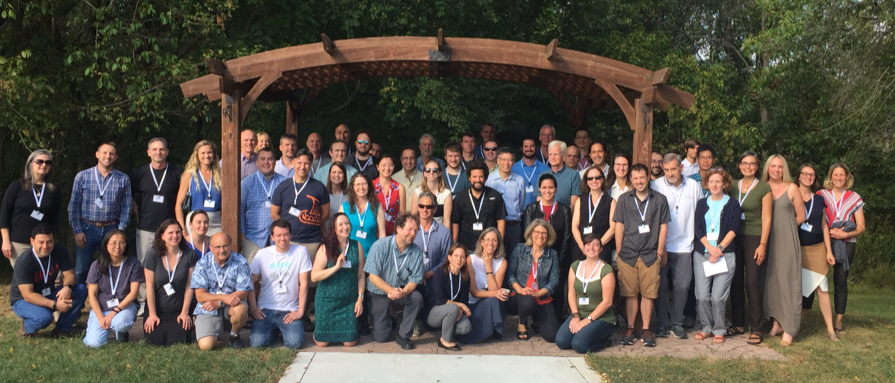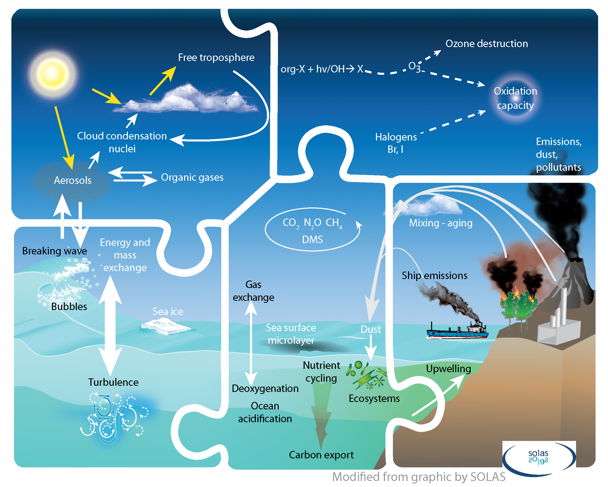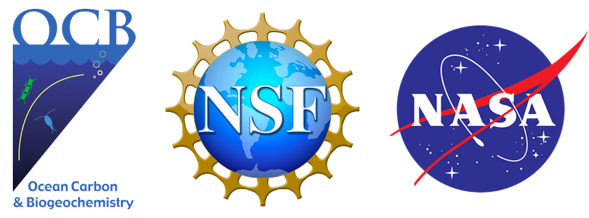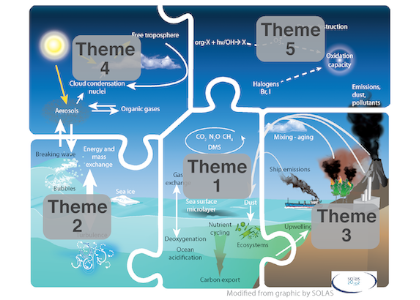
With leadership from the Ocean Atmosphere Interaction Committee (OAIC), OCB convened a community workshop Ocean-Atmosphere Interactions: Scoping directions for new research October 1-3, 2019 at The Woodlands at Algonkian in Sterling, VA. The goal of this workshop was to bring together members of the U.S. air-sea research community to facilitate new collaborations and identify knowledge gaps and high-priority science questions to motivate innovative research and contribute to international SOLAS efforts. The workshop included 59 members of the air-sea research community and representation from NSF, NASA, and the US Carbon Cycle Science Program. Keynote speakers gave presentations on each of the five core themes of the 2015-2025 SOLAS Science Plan:
- Laure Resplandy (Princeton): Core Theme 1: Greenhouse gases and the oceans
- Bill Asher (UW/APL): Core Theme 2: Air-sea interface and fluxes of mass and energy
- Ray Najjar (Penn State): Core Theme 3: Atmospheric deposition and ocean biogeochemistry
- Amanda Frossard (UGA): Core Theme 4: Interconnections between aerosols, clouds, and marine ecosystems
- Eric Saltzman (UCI): Core Theme 5: Ocean biogeochemical control on atmospheric chemistry
After each presentation, participants broke up into small groups for in-depth discussions to identify knowledge gaps and priorities for future research within each theme. After the theme discussions, the workshop participants identified crosscutting (across themes) questions of interest and convened small group discussions to assess relevance and importance to SOLAS, associated unknowns, and potential implementation mechanisms (experiments, measurements or field campaigns, models, parameterizations, remote sensing products, etc.). The workshop also included a panel discussion on previous SOLAS process studies and field campaigns featuring agency managers and scientific leadership from GasEx, Southern Ocean GasEx, the North Atlantic Aerosols and Marine Ecosystems Study (NAAMES), and several Arctic campaigns. Panelists shared their insights on the scientific outcomes, logistical challenges, community coordination needs, and funding mechanisms for these large-scale efforts.
From the participant discussions at the workshop, the OAIC will assemble a grassroots document to help coalesce the U.S. air-sea interaction research community around a common set of science goals and research priorities. The workshop and its outcomes are expected to strengthen ties between the ocean and atmosphere research communities and foster a more cohesive U.S. contribution to international SOLAS. For more information and to view the presentations from the workshop, please visit the workshop website.







